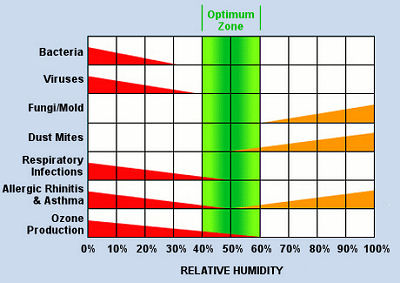Humidity Affect Comfort Levels During Summer

Humidity plays a significant role in determining comfort levels during the summer season, influencing how hot or cool the air feels to the human body. Humidity refers to the amount of water vapor present in the air, and it affects comfort levels through its interaction with the body's cooling mechanisms. Here's how humidity affects comfort levels during summer:
Perception of Temperature: Humidity can influence how hot or cold the air feels to the human body, even when the actual air temperature remains the same. High humidity levels can make the air feel warmer than it actually is by reducing the body's ability to evaporate sweat and dissipate heat effectively.
Heat Index: The combination of air temperature and humidity is often expressed as the heat index, which represents the apparent temperature felt by the body. Higher humidity levels result in higher heat indices, making the air feel hotter and more uncomfortable, especially during the summer months.
Impact on Evaporative Cooling: Sweating is the body's primary mechanism for cooling itself in hot environments. When sweat evaporates from the skin's surface, it removes heat from the body, helping to regulate body temperature. However, in humid conditions, the air is already saturated with moisture, making it difficult for sweat to evaporate efficiently. As a result, the body's cooling mechanism is less effective, and individuals may feel hotter and more uncomfortable.
Heat Stress: High humidity levels combined with high temperatures can increase the risk of heat-related illnesses and heat stress. In humid conditions, the body may struggle to dissipate heat effectively, leading to elevated core body temperatures, dehydration, and heat-related health problems, such as heat exhaustion and heatstroke.
Perceived Comfort: Humidity can influence perceived comfort levels, affecting individuals' overall well-being and satisfaction with their environment. High humidity levels can create feelings of stickiness, clamminess, and discomfort, while lower humidity levels may feel more refreshing and comfortable, even at higher temperatures.
Indoor Comfort: Humidity levels indoors can also affect comfort levels during the summer season. Excessively high humidity indoors can lead to a muggy, uncomfortable environment, promote mold and mildew growth, and worsen indoor air quality. Conversely, maintaining moderate humidity levels indoors can enhance comfort and promote a healthier living environment.
Overall, humidity plays a crucial role in determining comfort levels during the summer season by influencing perceived temperature, heat stress risk, and overall comfort and well-being. Understanding the effects of humidity on comfort levels can help individuals take appropriate measures to stay cool and comfortable during hot and humid summer weather, such as staying hydrated, seeking shade, and using fans or air conditioning to reduce indoor humidity levels.
Thank you,